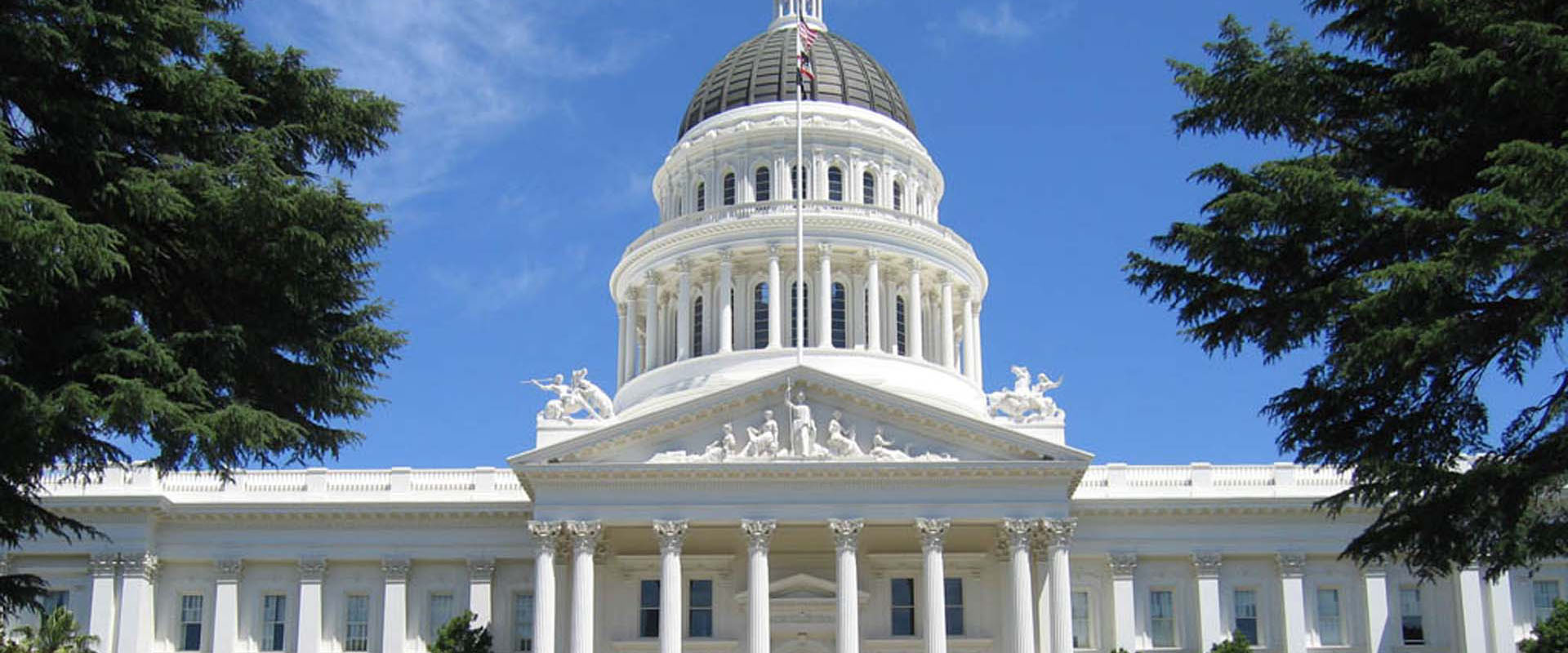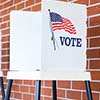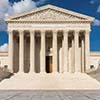Public Employees are Generally Immune from Suit Except When Their Decisions are Fraudulent, Corrupt or Made Without Legitimate Reason

June 2013
Number 33
In Freeny v. City of San Buenaventura (June 4, 2013 ___ Cal.App.4th ___ [2013 WL 2421601]), the California Court of Appeal recently held that the California Government Tort Claims Act (Gov. Code, § 800 et seq.) prohibits plaintiffs from suing public employees for day-to-day decisions made on the job. Specifically, public employees are not responsible for losses caused by their negligent or intentional misrepresentations, unless they are guilty of actual fraud, corruption, or acting deliberately to cause harm.
In Freeny, plaintiffs Robert and Linda Freeny owned two adjacent parcels of land in the city of San Buenaventura. For three years, they worked with their own architect and consulted with the City's staff to design a living facility for senior citizens. The City's Planning Commission eventually approved a forty-four unit, forty-two thousand square foot facility and related permits.
Individuals living near the proposed facility appealed the Planning Commission's decision to the City Council, which heard the matter at a public hearing. The City Council overturned the Planning Commission's approval, finding that building the facility would be incompatible with the existing residential neighborhood. The City Council invited the Freenys to submit a redesigned project.
The Freenys declined to redesign their project and instead sued the City and the five City Council members who voted to reject the project, asserting claims of fraud, misrepresentation, and elder abuse. Specifically, the Freenys argued that the language of Government Code section 822.2 regarding actual fraud, corruption, or malice created an exception to the City's and councilmembers' immunity from suit under the Government Tort Claims Act. The trial court dismissed the lawsuit and declared the City and councilmembers immune from suit. The Freenys appealed.
The appellate court reaffirmed the trial court's holding that the City and councilmembers were immune from suit under the Government Tort Claims Act. The councilmembers' immunity was sustained because (1) public officials are immune from suit for injuries caused by their adoption or failure to adopt an enactment, and (2) public officials are immune from suit for injuries caused by issuing or denying permits or similar authorizations. Thus, the court reasoned that the Legislature intended immunity from tort liability to attach to policy-making decisions even when those decisions are made with improper motives. The court said that the common good is best served by letting public officials do their duty "without fear" of being sued, even where policy-making decisions are made with "improper motives."
The court likewise declared the City immune from suit because California law provides that a public entity is not liable for injuries caused by officials or employees who are themselves immune from suit. The law additionally provides that public entities are absolutely immune from suit where plaintiffs allege that government employees made negligent or intentional misrepresentations. Thus, governmental immunity trumped the Freenys' claims of liability against the City.
Freeny recognizes the sweeping breadth of governmental immunity; however, the decision does not stand for the proposition that public officials are always protected from lawsuits under the Government Tort Claims Act. Rather, Freeny protects governmental entities and public officials from "harassment and personal liability" from "unhappy constituent[s]."
Not all entities and officials will be covered under the holding in Freeny. Though the government and public officials are presumed to be immune from suit under the Government Tort Claims Act, public employees who are not engaged in legislative or other discretionary policy making remain liable for misrepresentations they make in the course of their employment. Though public employees are protected against mere allegations of fraud, corruption, or malice, they are liable if they are found guilty of actual fraud, corruption, or acting without sound reason.Freeny thus assures public entities and officials that they are protected from suit under the Government Tort Claims Act so long as their decisions are free from fraud and corruption and are made with legitimate reason.
For further information regarding the Freeny decision, or governmental or public official liability in general, please feel free to contact one of our eight offices located statewide. You can also visit our website, follow us on Facebook or Twitter, or download our Client News Brief App.
Number 33
In Freeny v. City of San Buenaventura (June 4, 2013 ___ Cal.App.4th ___ [2013 WL 2421601]), the California Court of Appeal recently held that the California Government Tort Claims Act (Gov. Code, § 800 et seq.) prohibits plaintiffs from suing public employees for day-to-day decisions made on the job. Specifically, public employees are not responsible for losses caused by their negligent or intentional misrepresentations, unless they are guilty of actual fraud, corruption, or acting deliberately to cause harm.
In Freeny, plaintiffs Robert and Linda Freeny owned two adjacent parcels of land in the city of San Buenaventura. For three years, they worked with their own architect and consulted with the City's staff to design a living facility for senior citizens. The City's Planning Commission eventually approved a forty-four unit, forty-two thousand square foot facility and related permits.
Individuals living near the proposed facility appealed the Planning Commission's decision to the City Council, which heard the matter at a public hearing. The City Council overturned the Planning Commission's approval, finding that building the facility would be incompatible with the existing residential neighborhood. The City Council invited the Freenys to submit a redesigned project.
The Freenys declined to redesign their project and instead sued the City and the five City Council members who voted to reject the project, asserting claims of fraud, misrepresentation, and elder abuse. Specifically, the Freenys argued that the language of Government Code section 822.2 regarding actual fraud, corruption, or malice created an exception to the City's and councilmembers' immunity from suit under the Government Tort Claims Act. The trial court dismissed the lawsuit and declared the City and councilmembers immune from suit. The Freenys appealed.
The appellate court reaffirmed the trial court's holding that the City and councilmembers were immune from suit under the Government Tort Claims Act. The councilmembers' immunity was sustained because (1) public officials are immune from suit for injuries caused by their adoption or failure to adopt an enactment, and (2) public officials are immune from suit for injuries caused by issuing or denying permits or similar authorizations. Thus, the court reasoned that the Legislature intended immunity from tort liability to attach to policy-making decisions even when those decisions are made with improper motives. The court said that the common good is best served by letting public officials do their duty "without fear" of being sued, even where policy-making decisions are made with "improper motives."
The court likewise declared the City immune from suit because California law provides that a public entity is not liable for injuries caused by officials or employees who are themselves immune from suit. The law additionally provides that public entities are absolutely immune from suit where plaintiffs allege that government employees made negligent or intentional misrepresentations. Thus, governmental immunity trumped the Freenys' claims of liability against the City.
Freeny recognizes the sweeping breadth of governmental immunity; however, the decision does not stand for the proposition that public officials are always protected from lawsuits under the Government Tort Claims Act. Rather, Freeny protects governmental entities and public officials from "harassment and personal liability" from "unhappy constituent[s]."
Not all entities and officials will be covered under the holding in Freeny. Though the government and public officials are presumed to be immune from suit under the Government Tort Claims Act, public employees who are not engaged in legislative or other discretionary policy making remain liable for misrepresentations they make in the course of their employment. Though public employees are protected against mere allegations of fraud, corruption, or malice, they are liable if they are found guilty of actual fraud, corruption, or acting without sound reason.Freeny thus assures public entities and officials that they are protected from suit under the Government Tort Claims Act so long as their decisions are free from fraud and corruption and are made with legitimate reason.
For further information regarding the Freeny decision, or governmental or public official liability in general, please feel free to contact one of our eight offices located statewide. You can also visit our website, follow us on Facebook or Twitter, or download our Client News Brief App.
As the information contained herein is necessarily general, its application to a particular set of facts and circumstances may vary. For this reason, this News Brief does not constitute legal advice. We recommend that you consult with your counsel prior to acting on the information contained herein.




